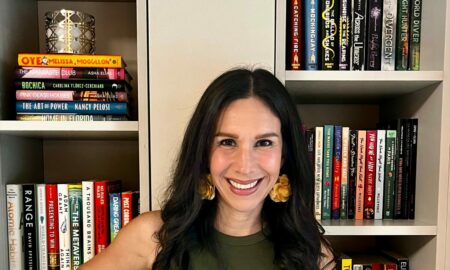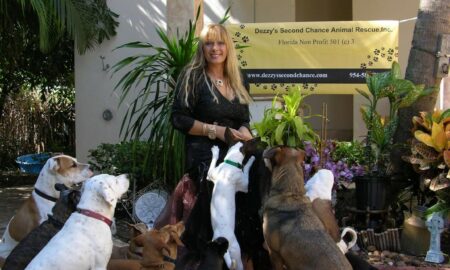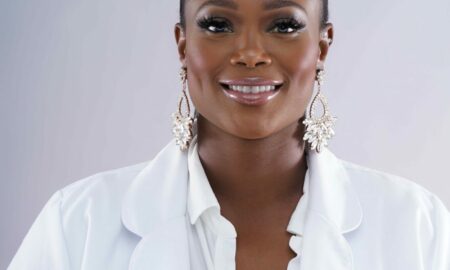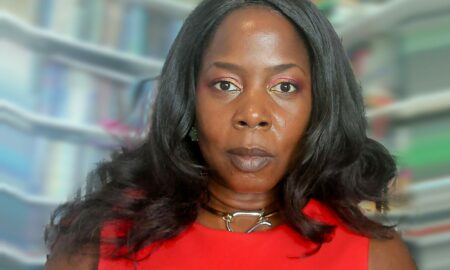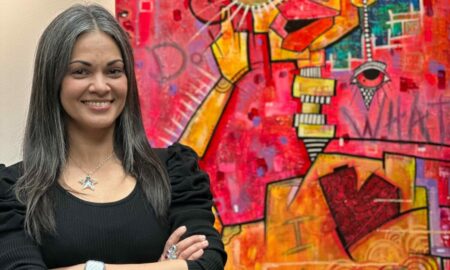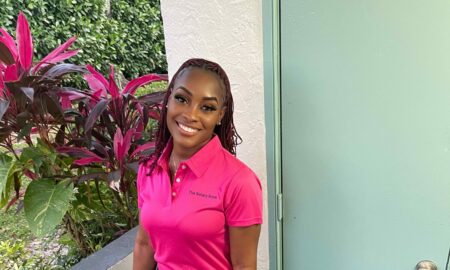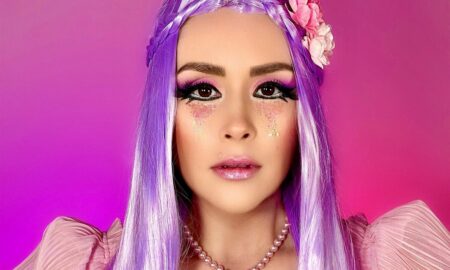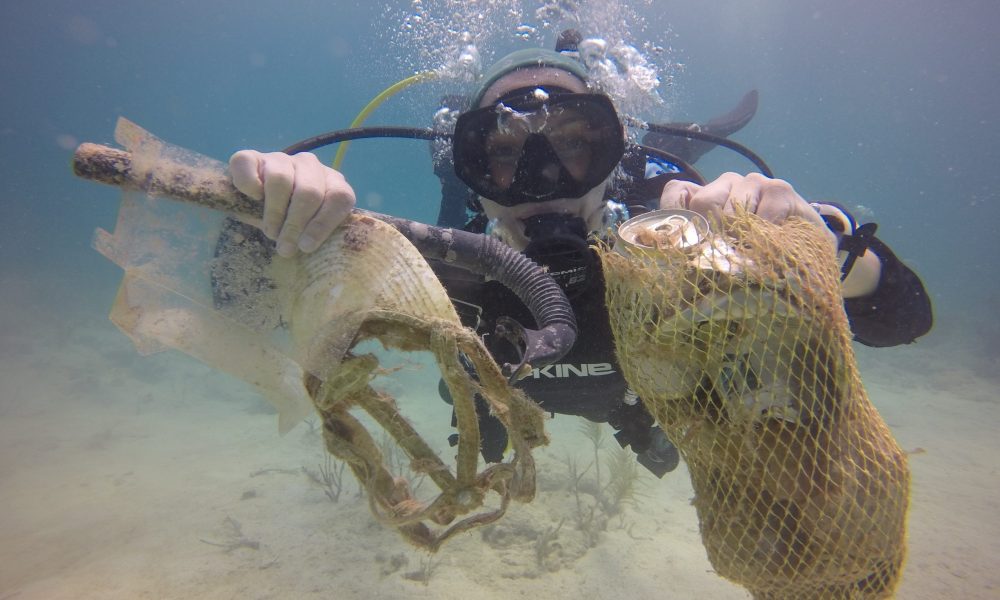

Today we’d like to introduce you to Madeline Kaufman.
Madeline, can you briefly walk us through your story – how you started and how you got to where you are today.
I grew up in a small town outside of Baltimore, MD and fell in love with the ocean during family summer trips to the Jersey and Delaware shores. While I was in high school, I was lucky enough to visit Turks and Caicos with a family friend, where we tried SNUBA diving (a version of SCUBA diving in which your tank stays afloat at the surface), at which point I knew I needed to spend more of my life under the water. I went home and immediately signed up for the Open-Water Diver certification course.
I also applied to the University of Miami’s Rosenstiel School of Marine and Atmospheric Science. As an undergraduate science student, I loved all of my classes, but I didn’t begin to get super involved in the field until studying abroad in the Galapagos Islands, another opportunity for which I am incredibly grateful. The marine life there was out of this world; I swam by a sea lion that blew bubbles at me in response to my bubbles, I dove next to a school of hammerheads that gazed curiously at me as they gracefully swam past.
Upon jumping into any part of the ocean there, I was surrounded by a suite of animals coexisting in a flourishing ecosystem. I knew that more places on Earth needed to be like the Galapagos Islands and that I wanted to dedicate the rest of my life to contributing to environmental conservation causes. Upon returning from this trip, I began to dip my toes into any and all marine conservation events and organizations that I could find.
I began blogging about what I was doing, from volunteering at Pelican Harbor Seabird Station in North Miami to learning how to extract DNA from Lionfish gut contents at a workshop in Vero Beach. I eventually went on a “Day on the Reef” dive trip hosted by nonprofits Debris Free Oceans (DFO) and Rescue a Reef (RAR). DFO is a Miami-based nonprofit dedicated to the eradication of marine debris, and RAR is a citizen science program that engages the public in coral restoration based, out of Dr. Diego Lirman’s Benthic Ecology Lab at the University of Miami.
We spent a beautiful day underwater removing 200 lbs of trash from and planting 100 fragments of coral onto the reef. This event blew me away; these organizations engaged and inspired ordinary members of the community to do so much good. After the trip, I approached DFO Co-founder Caiti Pomerance and RAR Program Manager Dalton Hesley and expressed my interest in volunteering more in the future. Little did I know that in two years I would be organizing and leading an identical RAR/DFO collaborative dive trip.
Shortly after that life-changing dive trip, I began working at South Beach Divers (SBD). I cannot thank this dive shop enough for arranging an agreement in which I was able to work off a portion of my divemaster certification course. If it had not been for them, I would not have received this professional certification that opened the countless doors that followed. Once a divemaster, Dr. Lirman encouraged me to become a scientific diver through a course offered at FIU over the summer.
Then, as a divemaster and scientific diver, I was able to begin leading reef cleanup dive trips and working coral restoration dives. I ended up spending a gap year volunteering for DFO and working at SBD and Dr. Lirman’s lab. At the dive shop, I took on the role of Environmental Coordinator and began organizing and leading conservation-oriented dive excursions. At DFO, I took on the role of Outreach Coordinator and began working different outreach events and organizing fun cleanups, like yoga and SCUBA cleanups.
In the Lirman Lab, I took on the role of a research and field assistant, actively participating in restoration activities and helping out with coral laboratory experiments.
When I thought things couldn’t fall together any more perfectly, Dr. Lirman offered me a position as a graduate position in his lab. For the past year, I have been pursuing a Master of Science in marine biology at the University of Miami’s Rosenstiel School of Marine and Atmospheric Science, while continuing to volunteer for DFO and work for SBD when I can find the time during my studies.
Has it been a smooth road?
I think the first struggle was just choosing to pursue marine biology. I come from a family with professional histories in law, accounting, finance, etc. I did not have any relatives or close acquaintances in the marine biology field, thus didn’t have someone to reach out to for future career advice.
There were definitely times in which I contemplated pursuing a more familiar field with more reliable job opportunities, but at the end of the day, I knew that following my passions with an end goal of bettering the environment was more important. I can’t thank my parents enough for their unconditional support throughout the process.
Then there was the period of unemployment following graduation from undergrad. I spent hours writing cover letters and applying to jobs that I would never hear back from. I experienced a lot of rejection before receiving any offers; however, this period taught me to accept and grow from the common experience of rejection and motivated me to better myself.
Another struggle has been getting through times of utter exhaustion. In response to different blog and social media posts that I share, I receive a lot of comments about how awesome everything I do is, and how lucky I am- which is absolutely true! But so much work has gone into all of it. I have to spend long nights in the library following labor-intensive days in the sun, only to get up early and do it again the next day.
However, all of the tiredness is worth it, given the fun activities that I get to call “work,” and the impact that I get to have on conservation and the community. If the road is too smooth, you’re not doing it right. You can only better yourself and better the world through pushing yourself and leaving your comfort zone. You just can’t forget to take care of yourself, because you won’t be able to succeed unless you keep your mind and your body healthy.
So, as you know, we’re impressed with Rescue a Reef, Debris Free Oceans, South Beach Divers – tell our readers more, for example, what you’re most proud of as a company and what sets you apart from others.
As I mentioned earlier, I am currently a master’s student in the Lirman Benthic Ecology and Coral Restoration Lab at the University of Miami, and I volunteer for Debris Free Oceans and work at South Beach Divers when I can find the time. I spend my weekdays going to class, scientific diving, and working in the lab and spend the weekends working cleanup events and conservation dives.
I am most proud of these organizations’ ability to engage the public in marine conservation; all of these groups teach the community about the threats that the oceans are facing, and instill a sense of optimism when providing people with opportunities to help.
What sets us apart is our true dedication to the cause of environmental protection. We make sacrifices while dedicating long nights and early weekend mornings to spreading awareness about the wonders of the ocean and how important it is to make choices that support its fragile ecosystems.
Let’s touch on your thoughts about our city – what do you like the most and least?
Miami is a beautiful melting pot of people, environments, and opportunities. Everyday I am surrounded by individuals from all over the world and am exposed to a diverse array of food, art, and culture.
Within a few hours drive you can reach the beautiful beaches of the Keys, the pulsing life of the Everglades and the clear waters of the springs, and we have the enchanting Florida Reef Tract just offshore of Miami.
On a night when you want to hit the town, you can head to the European-like clubs of South Beach, the graffitied bars of the Art District, or the cool bars under the high rises of Brickell. This city has something to offer to everyone and leaves you no time to be bored.
What I like least about this city is the traffic (LOL) that makes it difficult to do the 1,000 things still on my to-do list after six years of living here!
Pricing:
- The cost of coming on a Rescue a Reef coral restoration dive excursion is $75!
- The cost of coming on a reef cleanup dive excursion at South Beach Divers is $90! (and we have one coming up on Feb. 23)
Contact Info:
- Website: MaddieKaufman.com
- Phone: 4436908900
- Email: kaufmanmaddie@gmail.com
- Instagram: https://www.instagram.com/maddiekaufman/
- Facebook: https://www.facebook.com/mkayy13







 Image Credit:
Image Credit:
RodrigoGaya
Getting in touch: VoyageMIA is built on recommendations from the community; it’s how we uncover hidden gems, so if you know someone who deserves recognition please let us know here.










